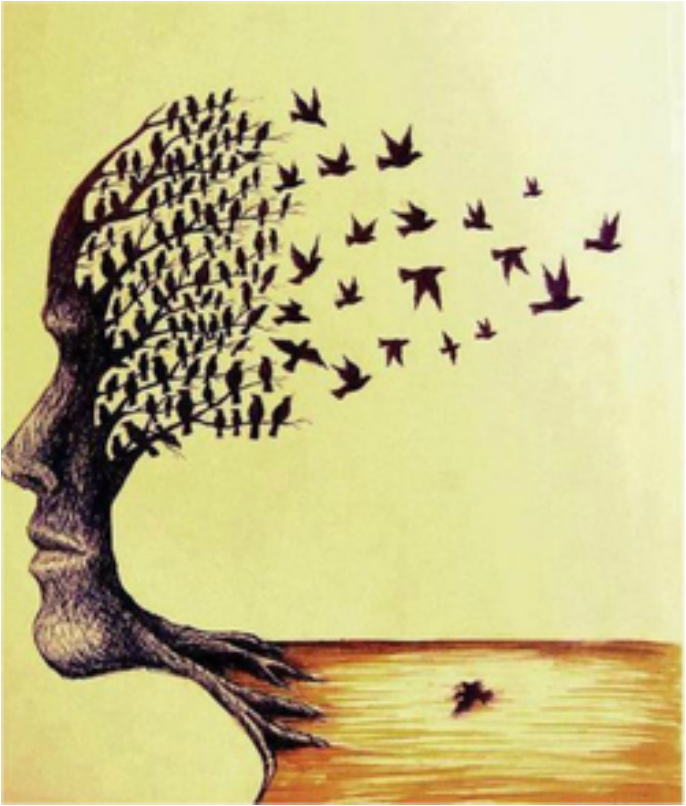- Home
- Site Index
- About Me
-
My Books
- Book List & Themes
- Strictly for Adults Novels >
-
Tales from Portlaw
>
- No Need to Look for Love
- 'The Love Quartet' >
-
The Priest's Calling Card
>
- Chapter One - The Irish Custom
- Chapter Two - Patrick Duffy's Family Background
- Chapter Three - Patrick Duffy Junior's Vocation to Priesthood
- Chapter Four - The first years of the priesthood
- Chapter Five - Father Patrick Duffy in Seattle
- Chapter Six - Father Patrick Duffy, Portlaw Priest
- Chapter Seven - Patrick Duffy Priest Power
- Chapter Eight - Patrick Duffy Groundless Gossip
- Chapter Nine - Monsignor Duffy of Portlaw
- Chapter Ten - The Portlaw Inheritance of Patrick Duffy
- Bigger and Better >
- The Oldest Woman in the World >
-
Sean and Sarah
>
- Chapter 1 - 'Return of the Prodigal Son'
- Chapter 2 - 'The early years of sweet innocence in Portlaw'
- Chapter 3 - 'The Separation'
- Chapter 4 - 'Separation and Betrayal'
- Chapter 5 - 'Portlaw to Manchester'
- Chapter 6 - 'Salford Choices'
- Chapter 7 - 'Life inside Prison'
- Chapter 8 - 'The Aylesbury Pilgrimage'
- Chapter 9 - Sean's interest in stone masonary'
- Chapter 10 - 'Sean's and Tony's Partnership'
- Chapter 11 - 'Return of the Prodigal Son'
- The Alternative Christmas Party >
-
The Life of Liam Lafferty
>
- Chapter One: ' Liam Lafferty is born'
- Chapter Two : 'The Baptism of Liam Lafferty'
- Chapter Three: 'The early years of Liam Lafferty'
- Chapter Four : Early Manhood
- Chapter Five : Ned's Secret Past
- Chapter Six : Courtship and Marriage
- Chapter Seven : Liam and Trish marry
- Chapter Eight : Farley meets Ned
- Chapter Nine : 'Ned comes clean to Farley'
- Chapter Ten : Tragedy hits the family
- Chapter Eleven : The future is brighter
-
The life and times of Joe Walsh
>
- Chapter One : 'The marriage of Margaret Mawd and Thomas Walsh’
- Chapter Two 'The birth of Joe Walsh'
- Chapter Three 'Marriage breakup and betrayal'
- Chapter Four: ' The Walsh family breakup'
- Chapter Five : ' Liverpool Lodgings'
- Chapter Six: ' Settled times are established and tested'
- Chapter Seven : 'Haworth is heaven is a place on earth'
- Chapter Eight: 'Coming out'
- Chapter Nine: Portlaw revenge
- Chapter Ten: ' The murder trial of Paddy Groggy'
- Chapter Eleven: 'New beginnings'
-
The Woman Who Hated Christmas
>
- Chapter One: 'The Christmas Enigma'
- Chapter Two: ' The Breakup of Beth's Family''
- Chapter Three: From Teenager to Adulthood.'
- Chapter Four: 'The Mills of West Yorkshire.'
- Chapter Five: 'Harrison Garner Showdown.'
- Chapter Six : 'The Christmas Dance'
- Chapter Seven : 'The ballot for Shop Steward.'
- Chapter Eight: ' Leaving the Mill'
- Chapter Ten: ' Beth buries her Ghosts'
- Chapter Eleven: Beth and Dermot start off married life in Galway.
- Chapter Twelve: The Twin Tragedy of Christmas, 1992.'
- Chapter Thirteen: 'The Christmas star returns'
- Chapter Fourteen: ' Beth's future in Portlaw'
-
The Last Dance
>
- Chapter One - ‘Nancy Swales becomes the Widow Swales’
- Chapter Two ‘The secret night life of Widow Swales’
- Chapter Three ‘Meeting Richard again’
- Chapter Four ‘Clancy’s Ballroom: March 1961’
- Chapter Five ‘The All Ireland Dancing Rounds’
- Chapter Six ‘James Mountford’
- Chapter Seven ‘The All Ireland Ballroom Latin American Dance Final.’
- Chapter Eight ‘The Final Arrives’
- Chapter Nine: 'Beth in Manchester.'
- 'Two Sisters' >
- Fourteen Days >
-
‘The Postman Always Knocks Twice’
>
- Author's Foreword
- Contents
- Chapter One
- Chapter Two
- Chapter Three
- Chapter Four
- Chapter Five
- Chapter Six
- Chapter Seven
- Chapter Eight
- Chapter Nine
- Chapter Ten
- Chapter Eleven
- Chapter Twelve
- Chapter Thirteen
- Chapter Fourteen
- Chapter Fifteen
- Chapter Sixteen
- Chapter Seventeen
- Chapter Eighteen
- Chapter Nineteen
- Chapter Twenty
- Chapter Twenty-One
- Chapter Twenty-Two
-
Celebrity Contacts
-
Thoughts and Musings
- Bereavement >
- Nature >
-
Bill's Personal Development
>
- What I'd like to be remembered for
- Second Chances
- Roots
- Holidays of Old
- Memorable Moments of Mine
- Cleckheaton Consecration
- Canadian Loves
- Mum's Wisdom
- 'Early life at my Grandparents'
- Family Holidays
- 'Mother /Child Bond'
- Childhood Pain
- The Death of Lady
- 'Soldiering On'
- 'Romantic Holidays'
- 'On the roof'
- Always wear clean shoes
- 'Family Tree'
- The importance of poise
- 'Growing up with grandparents'
- Love & Romance >
- Christian Thoughts, Acts and Words >
- My Wedding
- My Funeral
- Audio Downloads
- My Singing Videos
- Bill's Blog
- Contact Me
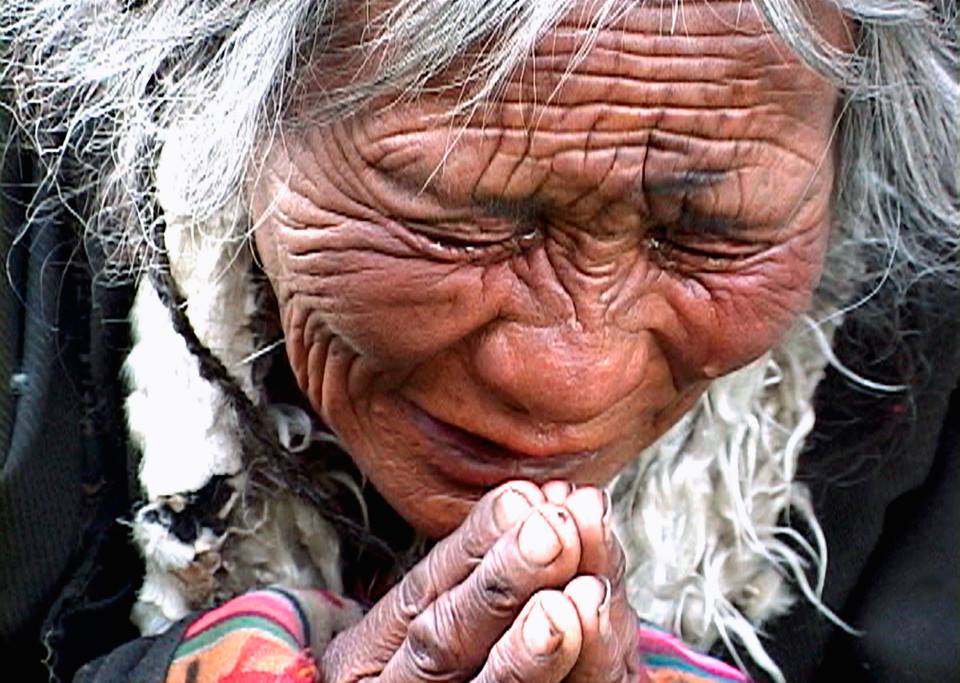 Thought for today: "I was watching a film on the television the other day and towards the end, I found myself crying. I have always been a crier, particularly when I see a child on the screen face hardship or death from some incurable illness. I have never been ashamed of crying because I know the process to be a safety valve. There is a sacredness in tears that only the heart can touch; there is a saddness in loss that only the soul can feel. Stay constant to all source of goodness and close to your God and you shall endure the worst of days and experience the best of times. Tears are often the morning's dew of sadness and carry more weight in their passage than speech ever could. Tears are conducted by the sadness of the soul and reflect the overflowing of a happy heart. They can contradict the mood of the moment, making one laugh over sad times past and cry over happier times experienced. They are most often seen at times of birth and death. The tears I always found the hardest to bear were those shed by my mother, daughterand wife, Sheila. I'll never forget the tears of my father (a man who genuinely thought it was unmanly to cry), when I first asked him to buy me a bycycle at the age of 6 years and financial circumstances wouldn't allow him to buy me a new bicycle. The one he did buy me from Cleckheaton Market Place was second hand and had no mudguards of brakes and cost him ten shillings; I loved it and I loved my dad a little bit more for his sacrifice. As I lay dying in hospital at the age of 11 years after a horrific traffic accident and the doctor said, 'I'm afraid your son will be lucky to see the night through, Mrs Forde', I'll never lose that image of her crying bitterly at the end of my bed. I will never forget setting off to emmigrate to Canada at the age of 21 years in 1963. As the taxi pulled away, I looked around and literally saw my mother's tears fall onto the glass as she pressed her face up close to the frosted glass of the window pane as she wondered if she'd ever see me again. I cried when I frequently saw my mother spit up blood and I cried for a full week after her early death many years ago as I sorted through her personal belongings, as my father couldn't bear to. I cried when I left my first love in Canada and flew back to England in 1965 knowing that we wouldn't see each other again. I cried after the birth of all my children and I cried for days when my wife told me unexpectedly that she didn't want to be married any longer and wanted a divorce. The longest period I cried was every night for two years before I went to sleep at a time when my ex and the mother to my first two children, in defiance of the Court Order to the contrary, wouldn't allow me any contact whatsoever with my children for two years. She wouldn't allow them to speak with me or I them. Eventually, the court lost its patience with her and threatened her with immediate imprisonment if she continued to obstruct the Order of Court. I also cried at the death of our beautiful dog Lady in the October of 2016. She started to die when Shela was in Singapore and I asked her to hang on until the day after when Sheila returned home. Our very first act was to take Lady to the vet and have her put to sleep. Tears I found unbearable were the ones from my daughter Becky after I told her I had a terminal illness. For weeks after, whenever she phoned me, I could her her stifled tears down the telephone line as they pierced my heart. The time that also wounded me was to see the tears of my wife, Sheila, during moments of sadness she experienced. To see someone you love more than anyone else in the world cry uncontrollably, and to know that though your presence and support undoubtedly helps them, nothing you do can remove the hurt that they are then feeling, I find heartbreaking. I have cried all the way through the writing of this morning's post as feelings for any big loss are never forgotten or ever die completely. Never mistake tears as the mark of weakness; they are the true expression of love and concern and the main indicator that you 'feel'. They speak more eloquently than ten thousand tongues and act more boldly than the bravest of hearts. Tears are messengers of the soul and are capable of conveying overwhelming grief, deep contrition, boundless love and all manner of human emotion that is better expressed in feeling than in the spoken word." William Forde: January 28th, 2018. 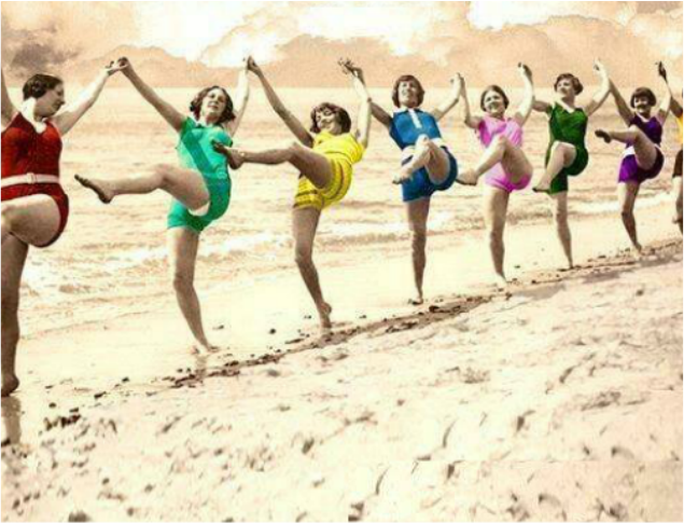 Thought for today: "After five weeks of pneumonia, one hospital admission and three courses of antibiotics (none of which had any positive effect due to me having no effective immune system), during which my average daily temperature has been 38 degrees, I'm pleased to say that my temperature has now returned to normal and that after a check up with my doctor yesterday, I've seem to have shaken off pneumonia on this occasion. I am told that contracting pneumonia can be a regular feature and consequence of my terminal illness in the future and that it can also be fatal for me. Today, however is a good day for me. We are due to have a brand new roof on the house next week which will take five weeks' work; then in mid April we are attending a wedding in Cumbria. It will also be nice to attend Mass on Easter Sunday. During early May, me, Sheila and two close friends will be going to see a good friend and one of my favourite singers perform. I have some complimentary tickets to see my friend, Chris De Burgh's concert up in Gateshead. My son William is visiting from Australia in mid May for a month and then in July, God willing, me, Sheila, son Adam and daughter Rebecca will rent a holiday cottage in the South of Ireland where I was born and spend a week there between my fortnightly blood transfusions. After having been confined to the house for over five weeks without being able to have any visitors, next week the shackles are removed and I am free once more to roam until I catch my next infection. I don't know about you, but I can distinctly feel summer in the air and I'm in the mood for dancing! https://youtu.be/RK8ZZIJLKms " William Forde. March 28th, 2015.  Thought for today: "There are some in life who have not yet found true love whilst there are others like myself, who managed to find true love a number of times. Imagine therefore the dilemma of finding two people at the same time; each of whom want to be your suitor and each you truly love. Such decisions of the heart must be the hardest of all decisions one is ever asked to make and yet, if one is to be true to oneself, it would be wrong to marry either while still holding as much love for the other. Far better to lose both loves, retain one's memories and keep one's heart intact. Either that or marry one and maintain a life-long affair with the other. Dilemmas....dilemmas!" William Forde: March 27th, 2015.  Thought for today: "The very best thing that children can grow up with and shouldn't be without is a book and a pet. It matters not the content of the verse so long as it be wholesome, and both dragon or dog will suffice as close companion, whether their existence be real or imaginary. Provide the opportunity of these two stimulants in constant supply and your child's imagination will always thrive. And lest you adults think that there is no such thing as dragons, allow me to put you wise. There lives within the heart of every man, woman and child, two dragons. One is the 'Dragon of Hate' and the other is the 'Dragon of Love.' Each of these two dragons have but one aim; to gain control over the mind, feelings and actions of the human body they inhabit so that the human behavior can be controlled in the direction they wish. However, both dragons, being opposing forces on the scale of 'good' and 'evil' cannot co-exist within the same human heart and only one of them will go on to conquer while the other is dispelled and banished. So if you want the 'Dragon of Love' to influence your child's thoughts, feelings, actions and overall behaviour, then simply place love in their heart, in the certain knowledge that it will cast out any anger harboured there. If you want your child to grow up with a healthy imagination, always make the listening of stories and the reading of books available to them. If you want your child to live their life happily while knowing that death of loved ones is a part of life, allow them their own pet. Of all the books I ever wrote for children which were most popular and established me as an author in 1990, were the stories of 'Douglas the Dragon' which can be purchased as an e-book in omnibus edition or in hard copy as an omnibus edition from www.amazon and www.lulu.com, with all profits going to charity. The books are suitable for the 7-11 year old reader and the late Princess Diana used to read them to her children, William and Harry when they were aged nine years and seven years respectively. 'The Douglas Dragon Stories' can be freely downloaded in audio form from my website by accessing http://www.fordefables.co.uk/douglas-the-dragon.htm For both young and older readers there is also a 'Douglas the Dragon Musical Play' which the National Lottery paid me to write and produce and which can also be freely downloaded from my website. http://www.fordefables.co.uk/audio-stories.html " William Forde: March 26th, 2015. 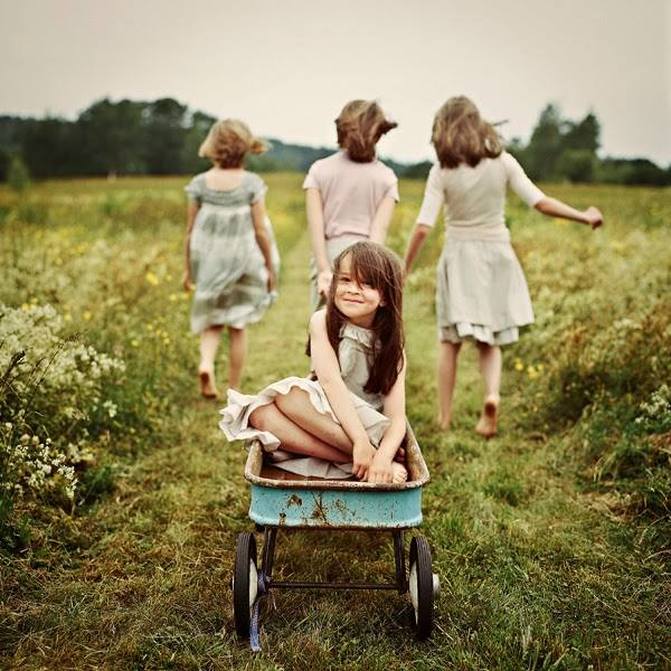 Thought for today: "Life is for living and not to be wasted. Cherish every moment that you can, for eternity is such a long time and a moment today does not even merit a speck of significance within the span of life eternal. Life is beautiful once you free yourself from the trappings of material want and harness yourself to appreciating the truth that all that endures cannot be purchased; except by the currency of true love, friendship and respect. From all your treasures, your family is more important to you than you could ever imagine as a young person, and the older you get, the more importance they will play in your life and well being. Your friends shall sustain you much more than any doctors medicines or herbal potions ever can if you are thrown into depression, ill health or dispair. Even the observant neighbour who notices the undrawn curtains of an old person's house can prove a life saver within a caring community! Keep your mind therefore from all needless and negative matters pertaining to others, as concentration on their faults and misdeeds cannot improve your own life one jot. Instead, focus on all that is good and wholesome in life and allow the full experience of every beautiful moment to enter your mind, body and soul and always dwell within." William Forde: March 25th, 2015. 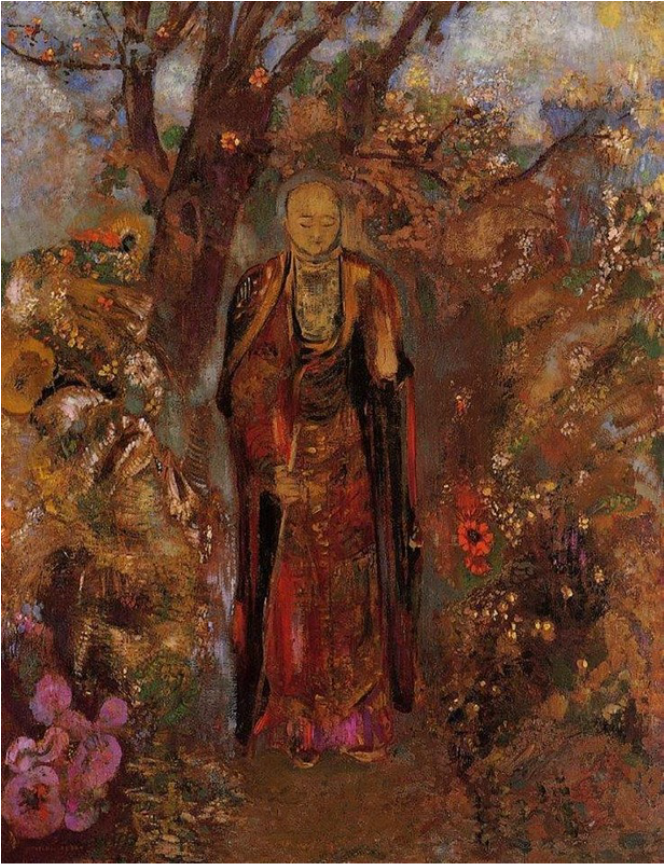 Thought for today: "While the voice of conscience is so delicate that it can be easily stifled, it is nevertheless impossible to mistake it. It is a peace above all earthly dignities morally measured and is never far away from the good cause. Should you ever engage in the bad cause, it will stir you and leave you forever unsettled; making inner peace once more only possible after you have righted the initial wrong. " William Forde: March 24th, 2015. 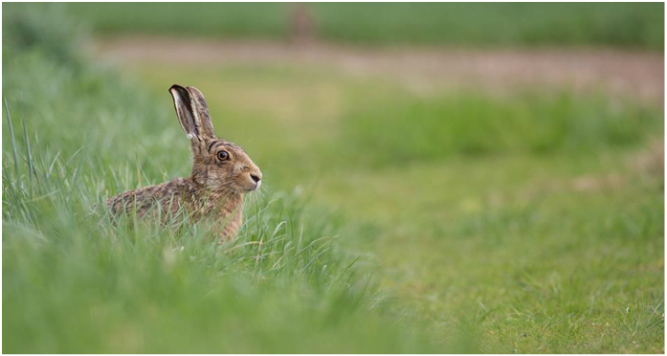 Thought for today: "This thing called 'failure' comes not about from falling down, but is born in the staying down and refusing to get up and face life anew. Anyone who has never made a mistake has never tried anything new. To live one's life is to become familiar with many mistakes and to make bedfellows of chance and opportunity. Many a confident player of plain voice will sing out loud while others of greater timidity and uncertainty will spend their days in hiding among the long grass as they waste their time stringing and unstringing their instrument while the song they came to sing remains unsung and any audience they once hoped to entertain has long departed. So be not afraid to fail, for in every failure can be found the seeds of success. Besides, all action implies some risk and without learning to engage in such risk from time to time, you'll simply get eaten up by the world around you." William Forde: March 23rd, 2015. 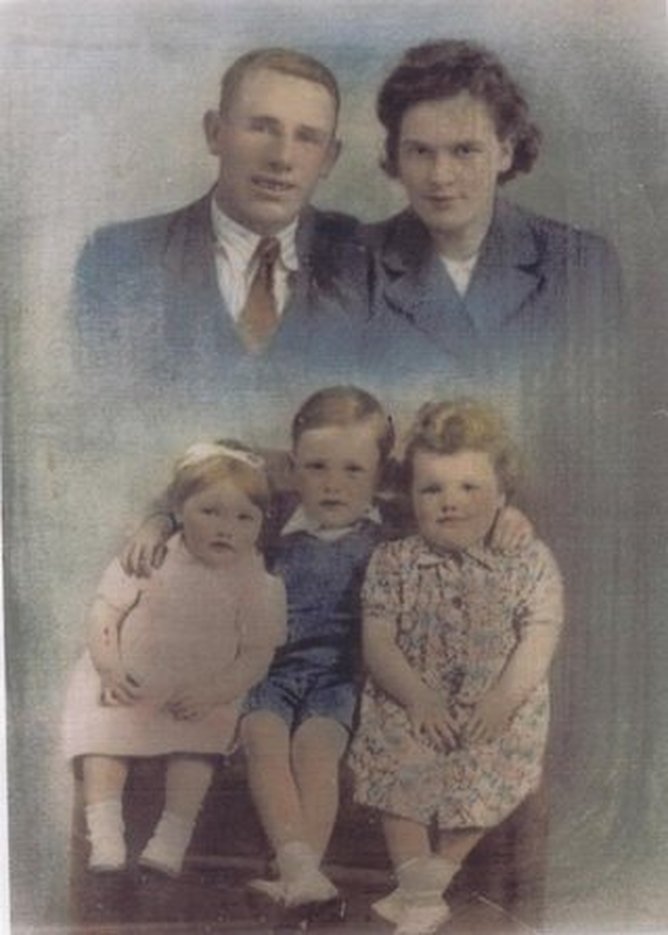 Thought for today: "Today is the first day of spring. It would have been my dad's birthday. He was a relatively uneducated man who left school before he'd reached his teens in order to start work. For most of his childhood, he lived in abject poverty in County Kilkenny, but he still rose to play soccer for his county and then prgressed to the Irish National squad. When he came to England he set up house for his family and went down the pits to work. I recall him once putting the welfare of his family first and being the only man to cross the miner's picket line, and yet despite this, he stayed in the pits for another five years and became a well respected man who feared neither man nor boss. I still recall those Sunday family outings that me and my two older sisters, Mary and Eileen enjoyed in our youth. Every Sunday morning we would walk one and a half miles from Windbank Estate down the New Road to Cleckheaton Church with dad. My mother would set off five minutes before the service and freewheel all the way down hill; usually arriving a few minutes late. After church, it would be my task to push the bicyle up hill all the way home. When we got back from the church service, my mother would make up some sandwiches from whatever we had left in the pantry (no fridges in the common English household in those years of the 1950's). Then off we would go with each sibling holding onto the next one in line while my parents made sweet talk at the rear and no doubt thought about the next newcomer to our household. I was eventually to finish up the eldest of seven children. After walking a nice three and a half miles across the fields to Brighouse Park, we would usually arrive too late to get a bandstand seat for the open-air brass-band concert that played there between 2.00pm and 4.00pm every Sunday. It would be around 6.00pm when we arrived home, tired out from running around, playing on the swings and the ten-mile Sunday walking. After tea, it would be bath and early night, ready for school tomorrow. Dad, who was always up and out to work in the pit by 5.30am daily would also be in bed by 10.00pm while my mother would get all the school clothes and packed lunches ready for her husband and the children's next day, put out their clothes, iron a few shirts and even darn any socks that required repair. I recall that bread and jam was the usual snack that most miners found in their snap boxes for their mid-day meal. My dad once told me that one of his comrades whose wife they thought made him up bread and jam sandwiches every day of the year would eat them in secret and pretend to relish them. His comrades suspected what was between his slices of bread apart from what he told them, but despite him deceiving them day in and day out, none could know for sure. One day he'd open his box and say loudly 'Smashing! My lass has given me a lovely bit of cheese and ham today. God only knows where she got that ham on ration.' Another day it might be corn beef and Branson Pickle. One day this particular romancer had a serious accident at work and when he was in the ambulance all he could say was, 'Get my snap box! Get my snap box!' His comrade complied with his wishes, retrieved his snap box and looked inside before he handed it back to the injured owner. Between the slices of bread wasn't butter and jam, but the more common fare of bread and dripping. They never let on they knew what he was daily eating and he simply carried on romancing the stone whilever he remained a miner. When I consider how hard a life my parents had in relation to the lives we live today, I'm not amazed that so many parents of their time died so early on in their lives. Often when I hear someone talk about their hardships today, I simply think, 'You don't know you're born mate! You don't understand the true meaning of hardship! My mum and dad could have told you about real hardship, as could any parent who learned to live and make do during the 1940s and 50s!' From all the books I've ever written, the one I enjoyed writing the most was 'Tales from the Allotment'. The story tells of the closure of the town pit and the worker's enforced redundancy. When they can no longer stand their daily idleness, the ex-miners start putting their efforts and miner's ways into the allotments. When this book was first produced, it was read by the tv presenter Michael Parkinson in a Barnsley school. It is avilable in e-book format from www.smashwords.com or in hard copy from www.amazon and www.lulu.com. As with the sales of all my books, all profit goes to charity to join the two hundred thousand pounds (£2,00,0000) my books have already made for charity. Enjoy. https://www.smashwords.com/books/view/387105 http://www.amazon.co.uk/Tales-Allotments-William-Forde/dp/1503289508/ref=sr_1_9?s=books&ie=UTF8&qid=1426850150&sr=1-9&keywords=william+forde http://www.lulu.com/shop/william-forde/tales-from-the-allotments/paperback/product-21906867.html I love you dad xxx" William Forde: March 21st, 2015.  Thought for today: "In the world of the modern-day family where each new technological gadget is instantly demanded by the youngsters of the household as soon as it hits the high street, there is always one loser; poor, old dad! Fortunately for me, apart from computer games, the children had grown up before every child had the latest telephone/computer gadget. I came to the world of technology late in life and to tell the truth, I needed to be dragged kicking and screaming into the 21st century by my children's and employer's attempts for me to embrace it. I retired at the age of fifty two on the grounds of ill health, and got out of the Probation Service just at the time when records and documents had to be typed into a word processor instead of being dictated to a personal secretary like I'd done for the previous twenty five years. Even when I started writing books, the first fifty books I got published had been written in longhand by me before they went to the printers for typing and producing. It has only been since I met Sheila five years ago that I now write my stories on computer. I recall each time I have changed my mobile phone since the new models could do new things each time one upgraded and the stand up arguments I have had with the salesmen who have insisted,'But this model has this and that and the latest....bla bla blar.' On each occasion I have replied,' I just want a mobile that phones out and receives calls in. I'm not bothered about anyone on the planet being able to precisely pin point my whereabouts each time I move. In fact, I'd really prefer folks not to know where I am or what I'm eating and who with. No.... I'm not too bothered about sat nav either or top-of-the-range photography and internet access." My mobile contract runs out this month and once again I face the dreaded experience of getting used to some other smart gadget. I swear that it's taken me the best part of the past two years to get used to the phone I presently have. I am quite proud of myself being able to at last use skype over the past year, particularly being able to see my son Will in Australia and my daughter Becky down South. My ideal preference would be to not use phones again and to get Sheila to vet all my calls as my personal secretary, which she is effectively anyway." William Forde: March 20th, 2015. Thought for today:
"We rarely stumble across our heritage as it is always there waiting to be explored and shared. I feel sure that man's desire to procreate and have their own children merely reflects man's need to ensure that heritage lives on, even when they die. One's heritage is like a cultural mark and a genetic imprint that will not wash off. When our heritage is evaluated, it turns out to be all down to genetics and peas in a pod. It is the seed of our family spread around the garden of mankind. Whereas a plant may die, its seed will live on and grow in identical image to that of its parent. Even in the shadow of death itself, we face life anew. There is never a time when everything a creature stands for, dies with them. There is never a time a body leaves this earth without leaving behind them life anew. Even in the experience of our death, our face lives on, as do our culture, religion, beliefs, mannerisms and gestures. Even the way we stand, walk and talk! All these parts of us and mannerisms live on in the family we leave behind on this side of the green sod, even when we inhabit the other side! Hold fast therefore to your family and your heritage and lose not your head to fanciful times. The flock of all past memories fly by, never to return if we sweep away our experiences of family history. Unless we are able to continuously nourish and water the roots of our heritage, in generations to come we shall be no more than just one more faceless person in a meaningless mass who has lost their way and is left with nothing of substance to hang onto and pass onto the next generation." William Forde: March 19th, 2015. 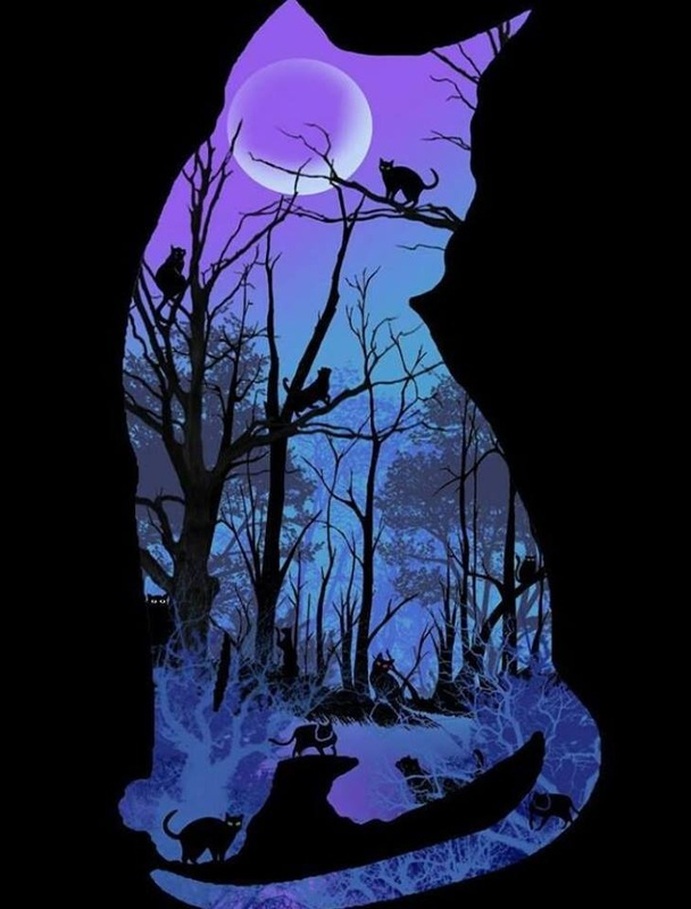 Thought for today: "Today is a good day. Although I'm due to spend the day in hospital having my fortnightly blood transfusion, I'm pleased to report that my recent month of pneumonia gradually seems to be on its way out. Having had pneumonia for the first time now since I developed my terminal illness, pehaps I won't hate the experience as much the next time that I acquire it, which I'm told is as likely as any of the rest of you out there catching a cold. Oh..... and I've lost a stone in weight in three weeks! So it looks like acquiring pneumonia on a more frequent basis could become a pet hate of mine.This thought got my mind onto other pet hates I have had in the past. As an ex moggy hater for more years than I can remember, I just never gave cats a chance to shine and I grew into my fifties considering the species as a natural accompaniment to witches, Satan, black magic and suspicious spinsters. It was not until the mid 90s that my appreciation of them greatly altered when I spent five years researching the species for a trilogy I had planned to write entitled, 'The Kilkenny Cat.' I had decided to make all of the characters in my trilogy those of cats who display human characteristics. By the time I had written this trilogy some seven years later, not only did I consider myself somewhat of 'a cat expert', but I actually found myself liking them! Without relating all those qualities that make the cat stand head and shoulders above all others in the pet kingdom and which all cat lovers readily know of, the most interesting thing that I learned during this seven year period was the most human thing of all. I learned that people who generally profess a dislike for a certain type of person, creature or activity are invariably displaying the fact that they know little or nothing about what it is they profess to dislike. I learned that it is largely the ignornance of any subject which naturally leads to mistrust or dislike of it and that once we know more and more about the thing we once disliked, we instinctively grow to like it better with our newer brush of understanding. Since writing 'The Kilkenny Cat Triology', I now consider cats to be my friends. Oh....and incidently, I now view witches and suspicious spinsters much more charitably than I did before! Anyone wishing to purchase the 'Kilkenny Cat Trilogy' in e-book format can do so from www.smashwords.com or from www.amazon and www.lulu.com if you prefer to read it in hard copy. All profits go to charity. Bye for now. I'm off for a few pints." William Forde: March 18th, 2015.  Thought for today: "Every man who has ever lived should show both love and pride to the country in which they were born and the flag they were born under. All of my life I have been proud to be an Irishman although I recall earlier years as a child in West Yorkshire, whenever in conflict with another neighbour, being taunted with the discriminatory jibe of 'Irish Tinker' and told, 'Go back to where you belong.' Whenever our family experienced such a response, while my father would frequently get angry my mother would take a much more measured response. 'Don't worry about what they say, Billy. They're only words and as for the children, they don't know what they're saying. They're just copyng their parents.Once they get to know the Forde family, they'll get to like us and accept us.' I recall that the initial response of our family, along with all the other Irish Catholic families on Windybank Estate was to become ever closer as a unit and to stick together through thick and thin. Consequently, every St Patricks Day, instead of hiding indoors, the Kennedy family from First Avenue along with the Donohoes from Third Avenue, the Fordes from Eighth Avenue, with others would have a St Patrick's do in one of their back gardens. In time, most of our English neighbours would suddenly discover long lost relatives in their heritage cupboards who were of Irish decent and over the years, as the Irish families on the estate grew to be more accepted, it was the turn of the West Indian immigrant and then the Pakistani person to bear the brunt of being the British scapegoat. I recall when I first married in 1968, that it was left to me and my wife to annually provide the St Patrick celebrations at our home for our Mirfield friends. For many years these parties continued unabated then, when the troubles blew up between the English and the Irish after Harold Wilson sent in British troops to occupy Northern Ireland and mainland bombings increased along with the carnage and senseless deaths of so many innocent people, everything Irish in my mouth tasted sour for a number of years to follow. For a number of years I was a man of divided loyalities, but when the time eventually came to decide on which side my loyalties lay, I had no doubt. While it had been Ireland that had breathed life into me and given me soul, it had been England who'd provided my father with a job, my family with a house and all seven children with an education that has served us well and a livelihood thereafter, besides enabling us to exist as a family who was always able to follow their religion and beliefs without undue hindrance. It has only been since the situation has settled down once more and that Northern Ireland is now jointly governed from Stormont that 'St Patrick's Day' has once again come back into its own in many countries across the world. Happy 'St Patrick's Day' to you all wherever you were born. Mine's a pint of Guinesss." William Forde: March 17th, 2015. 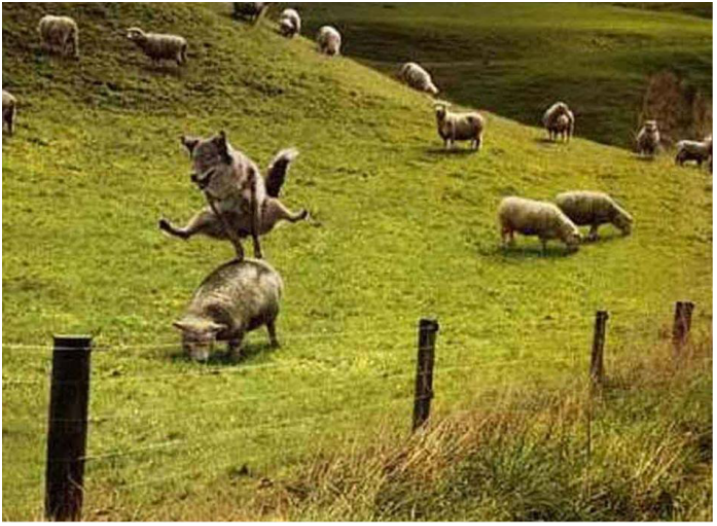 Thought for today: "Soon spring will be upon us like a roving gypsy with laugther on her tongue. New lambs will be born and wolves and lovers will come out to play. Spring is essentially Nature's way of saying, 'Let's party everyone. Let's make hay while the sun shines.' The one thing about spring is that you cannot stop it coming. You can cut down all the flowers, new shoots, hedgerows and grasses, but it will still come, because spring lives in the earth and not on it. With the coming of spring, my body starts to calm again as the surrounding warmth of life starts to touch our mornings, noons and eventides. Even seeing the young men and women walking out in colourful dresses and attention to their attire brings back memories of sweet love tasted. You can see a discernible bounce of confidence in the step of young lovers and even old men walk in gentler stride in the warm evening shade. It is the easiest of all things to fall in love with spring, and in my youthful experience I found it almost impossible not to fall in love in spring; every spring! William Forde: March 16th, 2015. 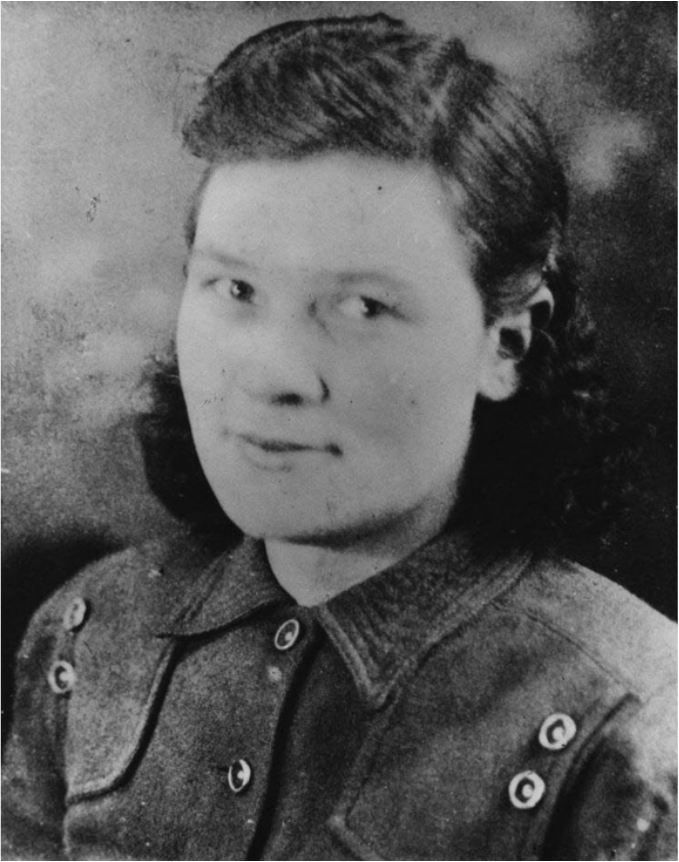 Thought for today: "When I was a young boy, my dear mother often told me, 'What we experience in life, Billy, depends largely on how we look at it.' At the time I didn't fully understand what she meant, but in later years I discovered her truth. When my mother died, I cried for over a week and even though I seemed to stop weeping, instead I learned to weep silently whenever I thought about her infinite goodness. When one's mother dies, it leaves a hole within that is like no other; an emotional devoid is created that can only be filled to leave you wholesome once more by acts of love performed in your mother's name and sweet recollections of her words and feelings that helped others she knew. I wish you a happy Mother's Day Mum and I try to remember all you taught me. One of the first things you taught me was that though people don't always see eye to eye when looking at the same thing, it is their inner feelings about the thing they are looking at that blinds their vision. When I was a young tearaway, I had two close neighbours from the estate where I lived and each looked at me with different eyes. One saw me as a budding thief who would one day end up in prison whereas another neighbour saw something good in me that she believe would one day come out. In their own way, each neighbour was equally as accurate in their assessment of me at the time. It wasn't too strange therefore, that I kept out of the way of the one who thought I would end up in prision and instead I befriended the other one; a pensioner widow of failing eyesight. Between fifteen and twenty, I visited her daily without fail across the road on the corner of Fourth Avenue and we chatted away for about an hour. She was a retired school teacher called Mrs Spivy and her daughter Peggy Kitchen lived in the first house of Eighth Avenue with her husband Jack and their son John (the very first young man from the estate ever to get a university place in Oxford). They would also call in daily to check on Mrs Spivy. I cannot recall exactly what we spoke about each day, but she would never let me go without reminding me that whenever she used to complain about me kicking balls into her garden and would keep them, her late husband would say, 'That Billy Forde will turn out okay, just you wait and see.' Mrs Spivy eventually went into an old folk's home and I kept in contact with her daughter Peggy via the occasional home visit, the occasional talk I would give to her group at 'St Barnabas Church,' Hightown and the annual exchange of Christmas cards, especially after her husband Jack died. Then Peggy went off the radar, not helped by a change of address by me and a divorce and we lost eventually lost touch. After extensive inquiries lasting over a year, I eventually found her in an old folk's home on Halifax Road Hightown, but after one visit and the promise of others to come, I'd developed my terminal illness which makes my presence in such places highly dangerous because of my absence of an effective immune system. My mother taught me that we all have two ways of looking at everyone who touches our lives and comes into our presence. One way will make them look better in our eyes and the other worse. Far, far better to choose the former. My mother taught me the message and Mrs Spivy lived out that message before my very eyes. Thinking of you both, Mum and Mrs Spivy on this most special of all days for mothers of wisdom." William Forde:March 15th, 2015. 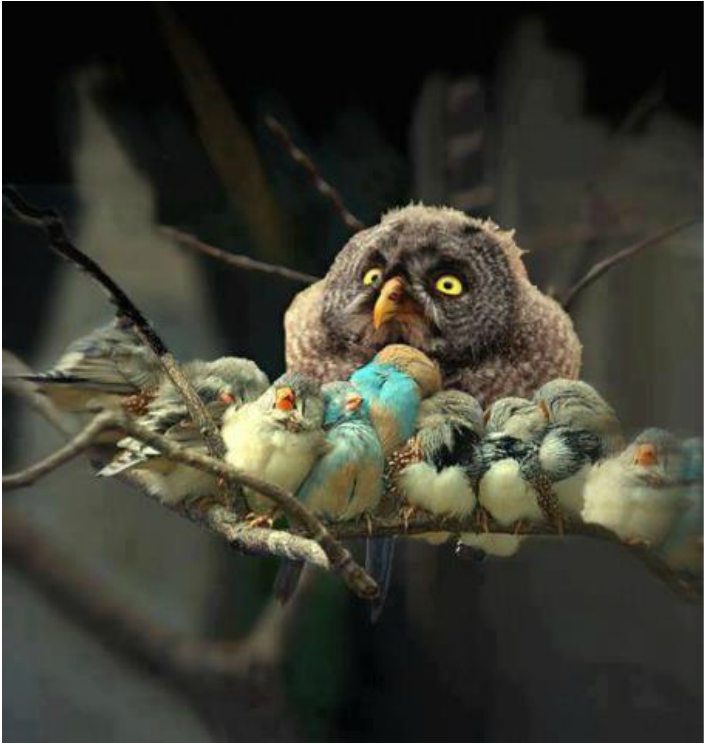 Thought for today: "Worrying is like a rocking chair insomuch as it gives us something to do, but doesn't get us anywhere. Why must we complicate our lives when all that is required to prevent one worrying unnecessarily all day long is to keep it simple. Here are a few helpful tips I have found extremely valuable over the years in keeping our many problems fewer: When missing someone, call. When wanting to go out with someone, invite. When wanting to be understood, explain. If you have a question that puzzles you, ask. If you don't like something someone is saying or doing, say so and ask them to stop. If you do like something they are saying or doing, let them know. If you love someone, tell them and show them. If you feel a strong emotion, appropriately express it. I have learned over the years that the precise words we speak commands the attachment of an appropriate level of body energy to accompany them and will either make it more or less likely for a speficic action to happen. This energy level blends our intentions to our instructions to our actions. Therefore: Saying 'I might' could produce a possible outcome or might not as the energy/determination level is low. Saying 'I will' is more likely to produce a probable outcome as the energy/determination level is higher. Saying 'I shall' will produce the outcome you desire as the energy/determination level is as high as can be. Think upon these simple rules the next time you decide to give up smoking, drinking or overeating etc etc. It really does matter whether you say, 'I might, I will or I shall.' Keep things easy and life goes much smoother. It also helps if you don't have eight young ones to look out for all day." William Forde: March 14th, 2015. Thought for today:
"All knowledge is the growth and true understanding of experience and all skill is the application of that knowledge to the world around you. It doesn't come from books, but the content of the books we read can often be of greater relevance to us and have a greater impact upon our lives at any particular time. My mother used to tell me, 'Billy, as important as education is, it's of no earthly use if it doesn't help you put food on the table and all the learning in the world isn't worth a jot if it doesn't make you a better person who is able to put it to good use.' There have been a number of books that have had a great impact on my life for the better. Perhaps the most important one was 'Les Miserables' by Victor Hugo. This book taught me that it was possible for a person stolen from to overlook the theft and to reinvest trust in the thief, who then goes on to make a good life for himself and family while becoming an important citizen in the community. I was reading this book at precisely the time when I stole from Mr Northrop the greengrocer and instead of reporting me to my parents and the police, he gave me a part-time job. I never stole again. The next book to inspire me was one that I picked up in an old book shop called 'The Town that was Murdered: the life story of Jarrow' by Ellen Wilkinson. This came into my life at a time when I was deeply into trade unionship and it revealed how 'capitalism' robbed the people of their modest lives and the right to work in the docks. I crossed the Atlantic heading for Canada in 1963 reading, 'To Kill a Mockingbird' by Harper Lee. It was at the height of racism in America. The book tells the story of lawyer Atticus Finch who attempts to break down the race barrier in his county by defending an innocent man who has been wrongly imprisoned because of racial prejudice. The next book to impact upon my life was 'The Power of Positive Thinking' by Norman Vincent Peale. When I read this book, the pages echoed what I had always felt to be true; namely 'that there is nothing that is either good or bad in this world that thinking it so will not make it so.' I was into cognitive thinking methods at the time and much of the book's content mirrored my own thoughts. Now, the above mentioned books, despite their content, were of great use to me at the time of reading them, not because they revealed something of great importance that I didn't know, but because they were effectively being read by me at a time in my life when their content would have the greatest impact on my life and because they reflected views and attitudes I believed to be true.They essentially reinforced what I was doing at the time, the way I was doing it and why. These books were not telling me anything new; they were merely making louder the echoes of my own soul; very much like the advice that a friend gives you that you want to hear. I do believe that in everyone's lifetime we will come across the thoughts and words of another that echoes our own soul also and that when they do, we will usualy finish up marrying them or becoming lifelong friends." William Forde: March 13th, 2015.  Thought for today: "I have thought upon the concept of 'freedom' many times over the past three years, especially since I was diagnosed with a terminal illness that often confines me to the house because of my absence of an effective immune system. Indeed, I'm presently on my third week of fighting off pneumonia and have been strictly advised not to interact with people, receive any visitors and not talk because of my bad chest and proneness to cough and cough if I speak even a few words. Yesterday, I think I may have come to the peak of this episode. My body was so tired and weak that I went to bed at 5pm and didn't get up until 10am this morning. When I saw the above photo, I thought, 'What wouldn't I give just to be able to wallow in a field of greenery for a mere five minutes and breathe the essence of Nature's nectar, produced by the lungs of God.' We are now in the month of March and fast approaching spring. I know that many of you will be half planning the prospects of a summer holiday in the warm months of June, July and August to sandy beaches and sunnier climates. Do you know that were I able to choose where I would like to be and see the things I would love to see over the coming months, not one of those exotic or scenic countries across the world would be on my list of five greatest pleasures. My first ideal trip would be to walk through the woods and meadows in spring at the break of dawn and to be intoxicated by the sounds and smells of woodland creatures in their natural habitat. Second, I would love to be able to walk across the wild moorland filled with grouse and heather and to drink cool clear water from a pure stream; every now and then seeing a hare scurry for cover. Third, I would love to have the strength to climb one of the Lakeland Fells that Albert Wainwright beautifully documentated, perhaps the highest fell of all; Scarfell Pike and have tea while looking off the top of it to the captivating countryside below. Fourth, I would love to be able to sit in the saddle of swift steed and to trot, canter and then gallop into the wind for at least one last exhilarating time. Finally, I would love to be able to walk half a mile from the house in Portlaw, County Waterford where I was born down to the bottom of the street, across the bridge that forever lives in my memory and has featured inso many of my books, up the steep hill to the church at the top where I was baptised and then across the road to the chuch graveyard where my grandparents lie and where my ashes will also rest after my passing. All the other places and experiences in the world I would gladly forgo, if only I was no longer house prisoner to my condition and could do these things with my dear wife, Sheila. So if you don't have the money for a holiday this year, think of five simplier pleasures that will delight as much and won't cost you the earth to experience." William Forde: March 12th, 2015. 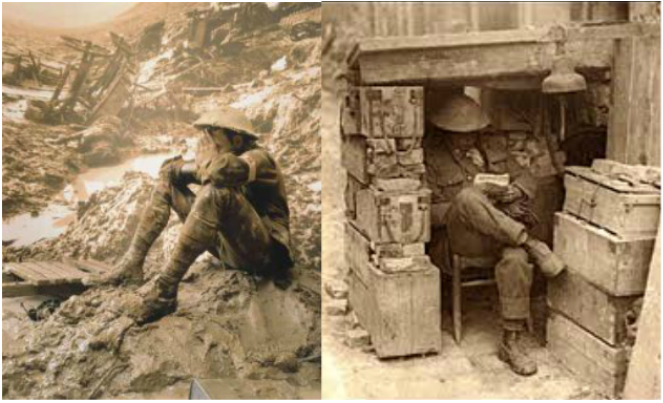 Thought for today:
"Love just doesn't sneak up behind you and grab you by the hand when you most need it; you invariably have to reach out for it. When you find your love, the best thing to hold onto in life thereafter is each other. The soldiers during the Second World War years knew how important it was to feel loved, especially when one was in the muddy trenches, never knowing if they would see their sweetheart's face one more time. They knew that love was like a war; easy to start, but hard to stop. Some of the most moving love letters I have ever read were written not by the nations favourite poets such as Elizabeth Barrett Browning, Lord Byron, John Keats etc, but by soldiers in the trenches during the war years. They were scribbled often with a shortened, blunt pencil as the rain pelted down from overhead during a lull in the battle and yet, despite the conditions the soldiers endured, such letters were written from the heart and displayed an extraordinary elegance of ordinary men going about their everyday duty. It was the most ironic sadness, but these letter writers often sensed when they were writing for their last time. They sensed the time you love the most is probably the time you have the least time remaining. There was much grieving after the Second World War when one's husband was one of the fallen ones, never again to return to his wife and children. There was a type of woman however, who grieved in silence; a woman who had secretly planned to marry her sweetheart on his return and set up home together. When her sweetheart died in battle, not being a relative, she wasn't informed of his death and only heard of it long after the event. Often unable to attend his grave until after his funeral, she mourned in private with a hurt that couldn't be lessened however much she cried. I once met such a woman who became like a second mother to me after my own mother had died. Her name was Henrietta Denton and she was to remain a spinster the whole of her 94 year life. I slept in her house during the last month of her life to care for her and it was during this time that she told me of her war-time sweetheart and the planned marriage that was never to be. She said she had never told another and had carried this secret with her ever since the 1940s. After Mum Denton's death, I wrote a poem that told her story and the stories of so many other forgotten women like her. The poem is called, 'Arthur and Guinevere' and it can be freely read by accessing http://www.fordefables.co.uk/arthur--guinevere.html "William Forde: March 11th, 2015.  Thought for today: "Life looks pretty good this way if you ask me. It's a strange fact, but the way that life looks to you depends largely on the way that you look at life. It's the old adage of the difference between the optimist and the pessimist. I find it almost impossible to think back to a time when I was extremely sad, with one possible exception (not including the death of loved ones). I was aged around fourteen at the time and though I didn't watch much television then, being more interested in going out with girls dancing and not sat in front of a goggle box, there was on one particular occasion a television programme that I dearly wanted to watch. It was a cowboy film. I cannot recall the precise reason now, but my father wanted me to do something else for him that evening which would mean me missing the film. I tried to get the the task changed to another night, but he replied it needed to be tonight. The more I realised that I wouldn't be seeing the film, the more emotional I became. Sensing this emotional change in me, instead of 'giving in' like most parents today would do, he became stronger in his refusal. Once my father had made up his mind, nothing would ever induce him to change it, even when he was wrong. That night, I did the job he required me to do and then went to bed in a sulk. I felt unhappy at having missed my film which I may never have the opportunity of seeing again. I subsequently learned that it hadn't been essential to my father that I did that task on the night he requested. He admitted as much when I tackled him about it and said, 'Any programme or thing that becomes more important than whatever your parents ask of you, isn't worthy of having at any cost.' I have never forgot that lesson today almost fifty years on; 'People do matter more than things.' At the top of Pack Horse once was a mined pit. After the pit had closed down, many poor families from nearby Windybank Estate would take their bicycles, bunkers and old prams up there on an afternoon and collect any remaining bits of coal or high-grade shale that could be used on their fires. Having been a miner, my father presumably had some knowledge of the best type of shale to burn. For three years of Saturday afternoons between the ages of seven and ten, I helped my father fill a full sack that took us up to three hours in all manner of weathers. My father would pay me sixpence wage for my afternoon's toil. The work was extremely dirty and hard, but I did it in good heart knowing that it would help warm the family home. This practice proceeded until one day a friend of mine told me that he'd seen my dad dump a sack of shale somewhere on the way down to Dransfield's Farm, off Second Avenue. At first I didn't believe my friend, but after our next excursion to the pit head at Packhorse, at the very first opportunity I followed my dad when he next placed a full sack across his crossbars and set off in the direction of Dransfield's Farm. After I'd checked that it had indeed been the shale we had spent hours collecting the previous weekend I angrily challenged him at the very next opportunity. This was no easy task for a boy to do in the early 1950s, especially to a father who lost his temper easily whenever his actions or decisions were brought into question. He never did tell me why he did what he did, but thankfully I had a mother who held nothing back from her children however cheerful or hurtful it might prove. 'Think nothing of it, Billy' mum said. 'He's only doing what his dad Ned did to him, by teaching you to work for your money and not to expect handouts when you're grown up and have left home.' My parents, despite raising seven children; all of us who went on to give to society more than we ever took from it, refused to take a penny from the State. The closest my mother ever came was to accept free orange juice tokens to supplement the children's diets. My parents, along with other parents of the time had been reared to earn what you spent, to borrow what you needed and to always pay back on time. For over fifteen years, Harry Hodgson's grocer's shop off the estate would allow us to purchase family provisions this week and pay for them out of my father's wages the following week. I once recall telling my dad that we all look at life differently. He replied by telling me that the only two things to look to as a resident on Windybank Estate that would maintain your respect in the eyes of your neighbour were the two unspoken codes of the estate. 'The first was to keep your word whenever you gave it, whatever the consequences, and the second was if you got caught doing wrong, own up, admit it, apologise and take your punishment like a man.' I know what wouldn't have happened to any politician who was found with his pants down, fiddling with kiddies or with his hand in the till in the 1950s. He wouldn't have retained his job, been knighted or kicked up to the House of Lords.......no! Instead, had Windybank Estate residents been Judge and Jury, he'd have most likely had the offending limbs chopped off, but one way or another, take it from me, he'd at least have been cut down to size and never been allowed to represent ordinary decent people again." William Forde: March 10th, 2015. 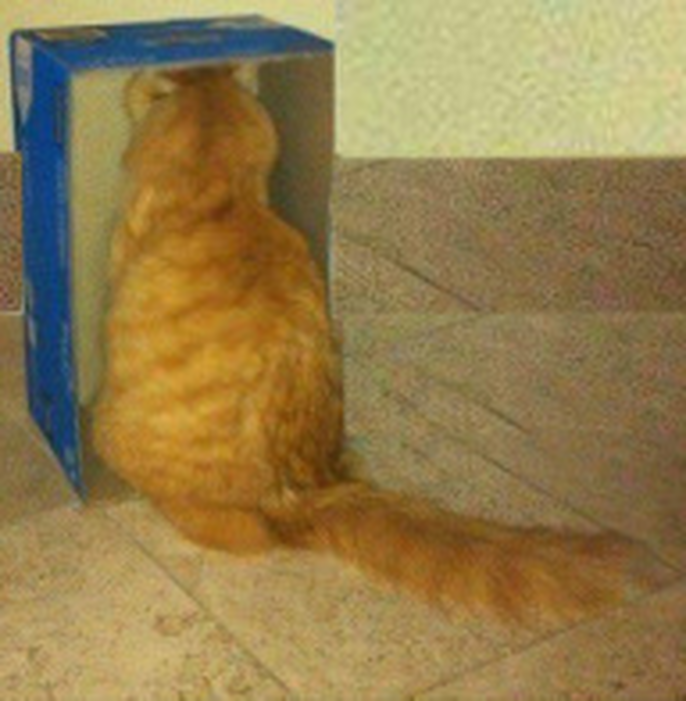 Thought for today: "There's only one place for a badly behaved puss like you, and that my dear friend is in the 'Naughty Corner.' So stay there until Mamma tells you when you can rejoin the rest of us. I remember first coming across the concept of the 'naughty corner' by some jolly-looking television Supernanny who made a name for herself in the early 2000. Before then, it had entered my world thirty years earlier when I was training as a Probation Officer. At that time it was an academic construct called, 'Time Out.' This was a behavioural devise used to separate an unruly child from their usual environment until they were prepared to stop misbehaving. Before that, I experienced it as a child way back in the 50s, when after doing something wrong, I was physically removed with a firm smack and sent to my bedroom until the next morning. Naturally, misdemeanours usually tended to be committed as close to bedtime as was possible and rarely occurred in the morning or early afternoon! In those days, this was callled 'being chastised.' While parental physical contact has diminished today, this has been partly replaced by an increase in guilt inducement, emotional blackmail along with mum and dad developing new looks of utter disapproval and the occasional raised voice. As far as I can see, all three concepts essentially existed for the same purpose and in the main produced similar results in the unruly child, but I have an inkling that it produced quicker and more long-lasting results during the 50s. The only difference in parents then to parents now, was that the old timers never lost sight of who was the child, who the adult and whose rule prevailed during moments of conflict between the two! The next time you find yourself in the 'naughty corner' with time to think, let me tell you a few things that might serve you well when you grow up and go out into the world as an adult." The first thing I want to tell you is that the world works on the principles of either 'competition' or 'cooperation' and invariably both. If you are wise, you will learn to apply both effectively as your circumstances warrant. Forget about those silly statements that you may have been told at school that there are no winners and losers and that in this class everyone is a winner and everyone gets a medal for trying. By giving you an inflated mark of accomplishment of seven out of ten for a performance deserving of little more than a rating of four or five, like the Aunt Sally at the fairground, you are being set up to be knocked down as soon as you come into contact with the hard world of teenage and young-adult years. Now, if you fail, you'll be marked a failure and even if you aren't, you will gradually grow to feel one. The second most important thing to think of in your 'naughty corner' and where you teachers are 100% on the ball is never dwell on uncomfortable feelings. When they advise to share with another, they are helping you in ways you cannot yet fully appreciate. Whenever troubled tell someone you trust what is bothering you. Learn to express your feelings honestly and you will grow into a heathy and happy adult. You can come out of your box now puss and don't dare eat my cornflakes again!" William Forde: June 26th, 2015. 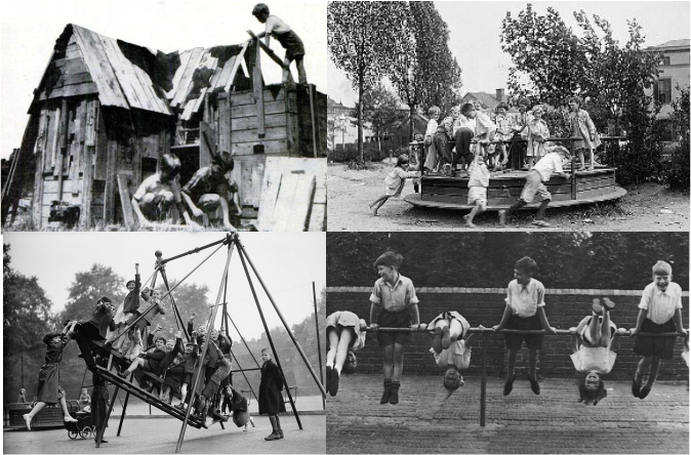 Thought for today: "The difference which exists today as opposed to those days of the 1950s when I was a child is so great that it's little wonder that children today grow up into adults that weigh up all the risks before they dare take a chance with life. My dear mother used to tell me, 'Billy, if you risk nothing in the pursuit of happiness then I'm afraid you'll finish up risking everything and gain nothing.' As a child between the ages of 7-11 years back in the 1950s, every part of one's life was different to what children experience or don't experience today. There were no mobile phones, play stations, lap tops and all the other sophisticated distractions that youngsters depend on today to occupy their lives stuffed with boredom. There was no staying in one's room alone, eating one's tea away from the family table or indeed, eating a different tea to the one that mum and dad ate or at a different time. During the school day, children exercised their bodies as well as their brains. After tea, children played out with their friends and invented games to play that took no more than their imagination and whatever items one was able to find lying around any household. You might ride your mum's long-handled brush like a cowboy or put a few feathers in one's scalp to become a native indian. A stick would become a sword with which to fend off the sheriff's men and a dustbin lid would act as your knight's shield. Other games involved bats and balls, pieces of wood, pebbles and chalk, skipping ropes and old tin cans; even cracks in the paving stones. As for the long summer holidays, unless you came from a well-to-do family, there were no expensive holidays to go galavanting off on. After breakfast, your mother would let you out with your friends and wouldn't see you again until tea time. She wouldn't have the faintest where you'd been, who with or what you'd done! Summer months were marvellous months for a child to experience out in the fresh air all day long. We might visit the swings in the local playing fields where we would climb as high as we could and have no fear that if we fell to the hard ground that we might break an arm or a leg. On other days we would visit Kirklees Wood and try to discover the grave of Robin Hood; hoping that we'd find something before the gamekeeper chased us off with his shotgun. We never did find Robin Hood's grave and the only things we came across was a dead fox on one occasion and a courting couple on another. We found both sights disgusting at the time. On some days, we might make bows and arrows and insert darts as their tips and go down the nearby fields called Green Lane and have battles. Two boys even had loaded air rifles armed with pellets, and they aimed to hit. There was another wood where we attached a long rope to one of the tree branches and where we would swing across from one side to the other with a stream thirty feet below. On an evening after tea, we would go to play inside any new houses that were being built on Windybank Estate and jump from their top bedroom windows onto piles of sand. The boy or girl who jumped from the highest height was declared the winner, even though the game only usually ened after someone had broken a limb and an ambulance had been called. Injuries along with hospital visits and inpatient stays were far more normal for a growing child then they are today. I would estimate that I had around six broken arms and half a dozen broken legs between the ages of 7-11 years, all obtained through my pursuit of having fun and taking risks. Saturday mornings were always matinee attendance at either the Palace or Savoy Picture Houses in Cleckheaton. If one had the money, one went in by the front door and if not, you hung around outside the fire exit by the cinema toilets until a friend would open up and let you in for free. It was common to see one boy go to the lavatory and two or three return. By the time one reached their teens and the raging hormones started to kick in, games like Post Man's knock where the reward was a kiss from a local girl became exchanged for one which involved dares, whilst also improving one's knowledge on the subject of biology. Every healthy boy or girl would find themselves introduced to the most daring of games called, 'I will if you will' or 'Show me and I'll show you.' Play these games and you would one day marry, but sit them out and only the life of a bachelor or spinster beckoned. I often think back upon those happy years of growing up on Windybank Estate and feel somewhat sorry for what the youngsters are missing out on today and can never know. I look around me and see how 'health and safety' regulations have essentially become the biggest pleasure spoilers in all our lifes today. The Women's institute can no longer make jam to sell, all playgrounds, where they exist, need felted grounds in case a child stumbles and grazes their knees and there are no more sack races for first-school attenders, along with fewer school activities without large amounts of cash needed for insurance purposes and indemnity charges against being sued in the event of an accident. In those days, having an accident was a fact of life and was usually perceived as essentially no one's fault; unlike today when blame needs to be placed somewhere and compensation sought from anyone else who might be considered negligible. Heroes and heroines of my day came from the pages of books like Robin Hood, Ivanhoe, Rob Roy, The Three Musketeers, The Famous Five, The Lone Ranger and Tonto, Roy Rogers, Hawkeye etc or from the films of the time; unlike today where celebrity is easily purchased by anyone entering the 'Big Brother House' or in some tabloid newspaper where fame can be bought by the kiss and tell story of sleeping with a footballer. I am glad that I grew up in the times I did and took the chances I took. Only those who risk going too far will find out just how far one can truly go. If you are not willing to risk the unusual, you will end up settling for the ordinary." William Forde: March 6th, 2015.  Thought for today: "What a differerence that fifty years in time makes; even in England, which I consider to be one of the most civilised, most tolerant and the least racist of countries in the world today. You know, no one is born racist and the best illustration of that fact is the innocent interaction between a child and an adult of different ethnicity. Indeed, I'd go so far as to say that a black-skinned person is no more or less likely to be racist than a white-skinned person and similarly, an immigrant or a native of this country. I lived on Windybank Estate, Liversedge and worked in the dyeworks of Harrison Gardners during the early 1960s. This decade was probably the most racist decade that I have ever experienced in England. It was a time when to be a black man was to feel the slave shackles of white constraint still tightly fastened around one's ankles. I can vividly recall signs in the windows of lodging houses that boldly said, 'No blacks, Irish or Dogs!' Some Working Men's Clubs refused to admit non-white members and the only consolation we could hold as a Nation was that we weren't quite as racist as was our American brethren across the Atlantic Ocean. For the most part of the 20th century, the white American made non-whites sit at the back of their public buses, made them attend non-white schools to be educated, made them use different toilets and drinking fountains to those of white Americans, forced them be treated in different hospitals and refused to serve and accommodate them in high-street shops and hotels. Meanwhile, back in England our country would have been unable to function without the immigrant worker. Without their presence to staff our hospitals, clean our toilets and drive our buses etc.etc, England would have ground to a halt. On my 18th birthday in November 1960, I became the youngest textile shop steward in Great Britain. I worked at the firm of Harrison Gardners at the time. Since Harrison Gardners had first opened during the earlier century, its proud boast of the elder son, John, was that its workers had never taken strike action. This was indeed a rare thing to boast about during a time of daily wild-cat strikes around the rest of the country; particularly in the docks, mills and factory yards. During my term as shop steward, a vacancy which had been advertised was answered by a West Indian immigrant. The management refused to hire the man because of the colour of his skin and to their credit, all of the men and women downed tools and came out on strike when their new, 18-year-old shop steward asked them to. While the strike only lasted a mere five days and the West Indian eventually decided to not pursue the vacancy, an important principle had been established in an otherwise racist country at the time. I will always remain proud of those men and women of Harrison Gardners who were prepared to buck the trend and defend the rights of the non-white person. Most of the employees of Harrison Gardners at the time lived on nearby Windybank Estate. At the age of twenty years I met and befriended a man from Pakistan called David. After a few weeks, I invited David out with me and a group of male drinking friends. When some of my mates at the time learned of David's origin of birth, they refused outright to be in his company. I recall giving up around half a dozen white friends and keeping David in my group of companions. I have often wondered why I never thought twice about the colour of a person's skin and have concluded that it's because of the nature of my mostly positive experiences with people of different ethnicity during childhood years. When I incurred a serious traffic accident at the age of 11 years, it was an African surgeon who operated on me and saved my life. Sometimes however, my experiences have not always been positive. I recall as a Probation Officer in Huddersfield during the 1980s, one of my colleagues behaved unprofessionally with a client and when I asked and expected her to correct her inappropriate behaviour, she refused to do so. This was around the time when the whole of the country was scared stiff of whatever they said or did if the other person was of non-white complextion. The female colleague in question had one parent of African origin and the other of white American extraction. The upshot was when she refused to correct her behaviour, I reported her to the Senior Probation Officer and took out a grievance procedure against her, but he (presumably being too fearful to reprimand her and do his job), refused to deal with this highly-charged situation. So I took out a grievance procedure against my senior also. In accordance with service protocol, that grievance was investigated by the next officer up the hierarichal scale who held the post of Assistant Chief Probation Officer. Like his subordinate, the Senior Probation Office, he also refused to act so I took out grievance proceedures against him also, and then the Deputy Chief Probation Officer and finally the Chief Probation Officer of West Yorkshire. I know that I was the only Probation Officer in the country ever to have taken out grievance procedures against every level of officer between main grade and Chief Officer. The tribunial took almost six months, cost tens of thousands of pounds and eventually found that, 'Although my Senior Probation Officer did wrong in what he did, it didn't matter if what he did was wrong, as long as he believed at the time that what he was doing was right.' The probation Service had effectively endowed its officers of Senior scale and above in grievance procedures with the right of 'infallibility' in their judgement in order to avoid dealing with a non-white officer who refused to correct her unprofessional behaviour. My non-white officer was never required to apologise and went about her daily business. This incident occurred a few months after the West Yorkshire Probation Service had run its compulsory racist awareness training courses. Every serving Probation Officer in West Yorkshire of all rank had undertaken a week's course in 'Racist Awareness' at Wakefield. The course was run by a staff of non-white American personnel and their opening line was, 'Whatever you believe yourself to be, if you are white then you are racist.' While such a bland statement would never be acceptable on any similar course today, at that time every white professional person in Great Britain, but England particularly, was running scared of putting a politically correct word out of place, Since that time society has moved on a great deal, but during my work and contact with many Jamaicans in Falmouth, Jamaica at the turn of the New Millennium, I was to see many incidents and attitudes of racism in reverse practised by the black-skinned person towards the white person. Similarly, for a number of years until recently, any British person who expressed any public view which questioned the right of an open-door immigration policy that conflicted with the politically correct politicians of the time was quickly branded 'racist.' 'Racism' is an inappropriate form of discriminatory behaviour which is carried out between black and white people, black upon black people and white upon white people. This is something that I have always believed and it is a belief that I feel can be easily historically backed up. It is a belief that I defended back in the days when political correctness ran rampant over common sense and is one which I will live and die with." William Forde: March 5th, 2015.  Thought for today: "Today I take my usual fortnightly trip to the local hospital to receive my blood transfusion following a twenty four hour scare and an emergency admission yesterday. I shall have to remain masked today. My body is in a 'catch 22' situation. Under normal circumstances I am probably too ill to have today's transfusion, but I need the increased body energy that the transfusion gives to fend off the pneumonia and to give the strong antibiotics chance to work. Each night my temperature almost reaches 39c and by the morning it has lowered to 38c. Self admittance to the hospital is supposedly 38c, but I'd be in more than out were I to strictly follow those guidelines. By mid afternoon it usually goes down to 37.5. Over the past months, I have gradually had to readjust to the reality of the many changes that I am going to have to incorporate into my future life, from a cold upwards. When one gets older, most change is usually resisted or resented. While this is a natural process to experience, having a terminal illness is a sure-fire way of teaching one that only through adaption to changing times can one continue to live at all. A gradual depletion of the body's oxygen levels coupled with increased immobility of limbs and a reduction of heart functioning uses up the reduced amount of energy that is now available to me at a faster rate. The obvious effect of this is that I walk less and tire more easily. Hence, my need to choose wisely what I do has never been more important to me. When one is unable to do everything one would like to do, choosing what one does takes on a new dimension and added meaning. When one's time to do the things one has to do is lessened, 'wasting time' becomes an experience that is ill-afforded and is just one more of those idle luxuaries to be avoided. If only I had come to this lately-aquired knowledge at the start of my life instead of towards its end, just imagine what a life I might have had and what disappointment I would have avoided. I would never have wasted one second on ever harming or hurting another and I would never have used one breath of my lungs on cursing, defaming, deriding or bearing false witness; now knowing that I would have been expending breath and energy needlessly and without benefit to me or anyone else in the process. Instead, I would have shouted from the roof tops more often about the injustices of society I could clearly see and I would have been much louder in my protestations of the discrimination that surrounded me. Also, I would have gone to all those places that my body could have taken me to, walked all those roads and highways that were there for the walking and done all those things that my mind dreamed of and my body-energy levels physically made possible to do. I would have generally got out more and met even more people than I did meet, because only in this way might I have become acquainted with more people who 'are like myself' as opposed to being friend and companion to 'those people I like.' Over the past year, at least once every two, three or four weeks, I have spent seven or eight hours of my day in the cancer ward of the local hospital with approximately two dozen cancer patients who are are being treated on day care. These numbers are but a fraction of the total number of people being treated for cancer related conditions every year and each visit I make, I invariably meet a room filled with new faces. Some cancer comrades are young adults, some middle aged and some are old, but we all share one thing in common. Most of us are each being treated for a terminal condition and for the overwhelming majority of us, we are having to face the consequences of dying at some future date under circumstances that none of us would have ever chosen. However, there are a good number of cancer patients being treated who will experience full remission and the resumption of a more normal life span. When the news of any success reaches the monthly group, it brings joy to the hearts of all present. In spite of the seriousness and gravity of our situations, it is quite apparent from the nature of the discussions I have with some patients while I have a few pints that we are all making much better use of our time we now daily use. This past year has brought me into contact with a group of people, whom under normal circumstances I would never have met and who I am so grateful for having crossed paths with; people like me who walk the road that I now walk. I won't pretend that we are all the same in character, thought or deed, but we have all been brought together to share the same journey and similar experience as comrades in cancer advancement as we each join the research programmes. Apart from the people I have been privileged to meet over the past year, I now briefly mention those people I will never meet, however long left I have to live, because of a change in present government policy. It has recently been announced that on April 2015, twenty five cancer drugs are to be denied on the NHS to new patients on the grounds of 'cost alone.' Charities have expressed outrage as the NHS announced plans to stop funding these drugs that are known to extend lives significantly in both length and quality for many kinds of cancer sufferers, including those for breast, prostate and bowel disease. As a consequence of this drug withdrawal, eight thousand cancer patients are likely to have their lives cut short annually. While there is little that can be be done for my own future that is not already being done by the doctors and hospital staff who deserve my highest of praise for their unflinching dedication, there is something that can be done for a definite eight thousand people next year by anyone who is prepared to speak out about such cruel change and the crushed hopes it will bring in its wake. Demand from your MP and the Government that it opens its coffers to all those dying of cancer whose lives can be sometimes saved or greatly extended in both duration and quality, instead of abandoning them to the wolves of world economics. It is time to ring fence adequate funds for the treatment of cancer when it has been proven that the drugs which are being withdrawn to new patients will undoubtedly shorten their lives. The chancellor, George Osborne recently announced with pride that Great Britain was the only country in the world to hit the target of 0.7% of gross national income (GNI) this year when we gave £11.3bn in overseas aid. While at face value, this grand gesture made by David Cameron's government seems magnificent, it is in effect vainglorious and is only being vigorously pursued I fear to enable him to strut bountifully on the world stage. He is giving much of the money to third-world countries that often finds its way to corrupt politicians and hardly ever reaches poor folk, besides also annually increasing our aid to India, a country that is known to possess its own weapons of mass destuction and adds to their nuclear arsenal annually, thanks to our country's silly policies. India even announced its own space programme in 2014. Surely a small decrease in our world aid contribution could be given to worthier causes like funding effective cancer drugs for our own people. But he will not hear of this even though officials in the Indian Government has told him quite clearly, 'We don't want or need your charity' " William Forde: March 4th, 2015. |
|
